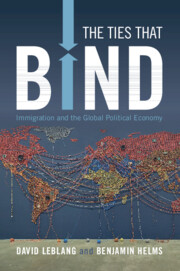7 - Conclusion
Migration and the Future of Globalization
Published online by Cambridge University Press: 02 February 2023
Summary
We conclude by placing our arguments and findings into the current context of rising political opposition to international migration. One of our central claims – substantiated by a range of empirical evidence – is that migration economically benefits both migrant-sending and -receiving countries. Migrants foster new international capital flows to both their home and host economies, and the remittances they send shield family and friends from negative shocks and help them invest in new assets. Yet in the US and Western Europe, anti-immigration politicians and parties threaten these potential gains. If nativist movements continue to enjoy electoral success and begin restricting immigration, the benefits of global human mobility will be increasingly in jeopardy. Just like every other stage of the migration process, harnessing the opportunity that mobility presents is a politically contingent proposition.
- Type
- Chapter
- Information
- The Ties That BindImmigration and the Global Political Economy, pp. 201 - 216Publisher: Cambridge University PressPrint publication year: 2023



